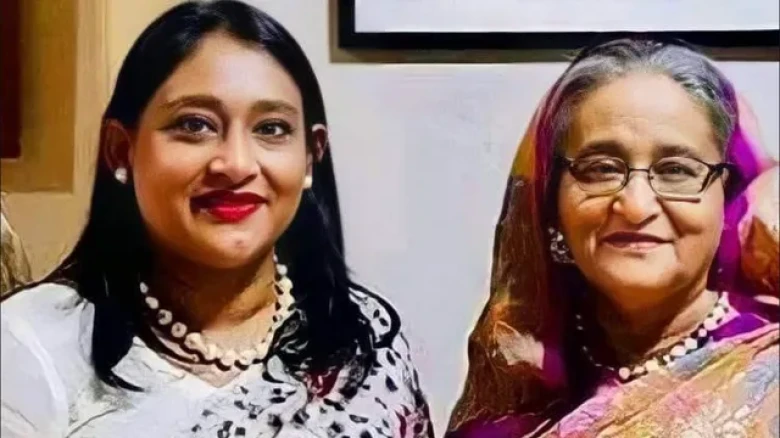The nomination will be presented to the WHO executive board during a meeting scheduled for January 22–27, 2024, in Geneva.
Digital Desk: India was one among the countries that declared support for the Bangladeshi candidate well in advance of the poll, which was preceded by a loud and occasionally acrimonious campaign over the previous few weeks.
Following a highly publicised campaign that put a public health specialist from Nepal against the daughter of the premier of Bangladesh, Bangladesh was declared the winner on Wednesday in the race for the top World Health Organisation (WHO) position in Southeast Asia.
Ten member states of the WHO's South-East Asia Region who were eligible to vote participated in the secret ballot election that was conducted during a meeting in New Delhi.
According to a statement from the Bangladesh High Commission, Saima Wazed, the daughter of Bangladesh Prime Minister Sheikh Haina, won eight votes, while Shambhu Prasad Acharya, the other candidate nominated by the Nepali government, received two votes.
As per a WHO statement, at a closed meeting at the 76th session of the regional committee for Southeast Asia, member states nominated Wazed to be the new regional director.
The nomination will be presented to the WHO executive board during a meeting scheduled for January 22–27, 2024, in Geneva.
Starting on February 1st of the next year, the new regional director will hold the position till February 1st, 2028.
According to a statement from the Bangladeshi mission, "This election, which received overwhelming support, reflects the recognition of Saima's passion and relentless work in public health and demonstrates the confidence and trust of the region in her leadership skills."
One of the six WHO regions, Southeast Asia, has its main office in New Delhi. Eleven nations make up this group: Bangladesh, Bhutan, Indonesia, Timor Leste, India, North Korea, Maldives, Myanmar, Nepal, Sri Lanka, Thailand, and the Maldives.
India, which has close relations with both Bangladesh and Nepal, had openly refrained from commenting throughout the intense campaign in recent weeks.
Having served in the WHO system for a long time, Acharya is presently a director in Director-General Tedros Ghebreyesus' office. The Mental Health Act of 2018 and the National Mental Health Strategy Plan for 2020–25 were enacted in Bangladesh, a nation well renowned for its work on autism. Wazed also contributed to the update of public health regulations in the country.
The majority of these elections to multinational bodies under the United Nations (UN) and World Health Organisation (WHO) are partially determined by geopolitical concerns, although the candidates' experience in public health issues is a factor. These individuals spoke on condition of anonymity. In order to promote its candidate in exchange for other countries' votes at another UN or WHO body, a country will frequently start lobbying for these elections years in advance.
Currently serving as the first female regional director is Poonam Khetrapal Singh of India. Her unanimous reelection in 2018 brought her to a second five-year term.

Leave A Comment